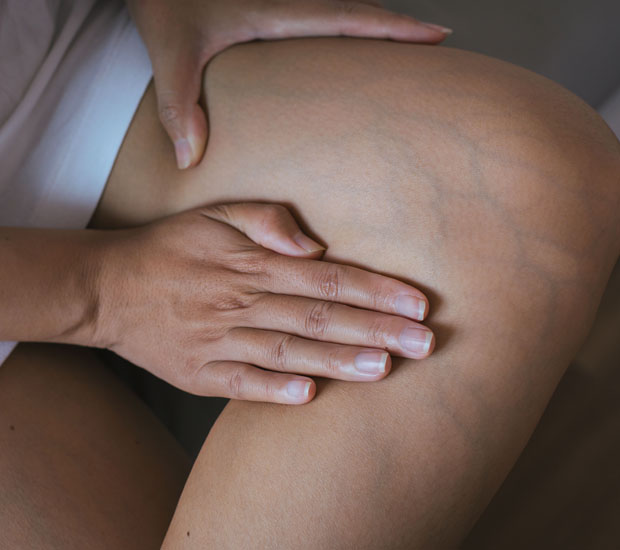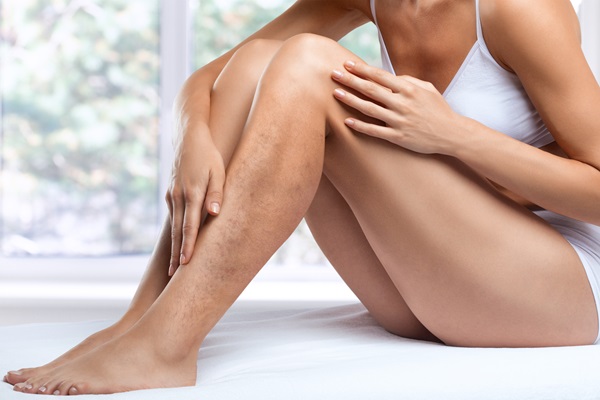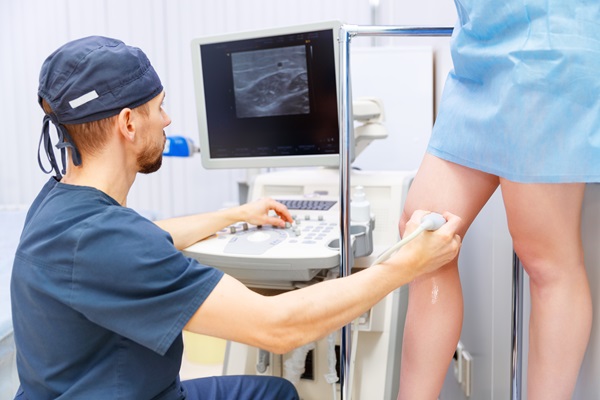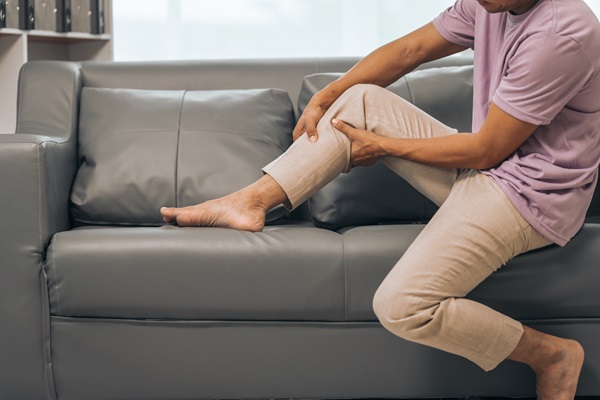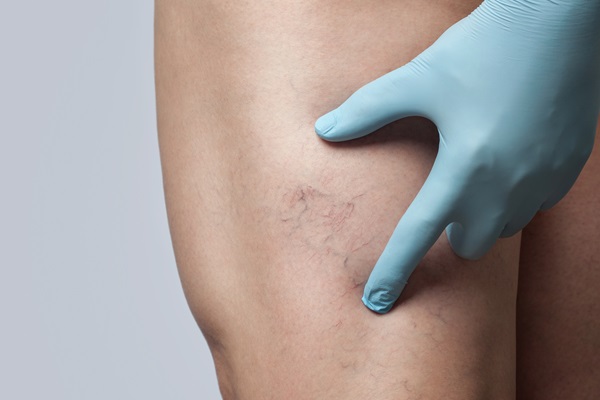Varicose Vein TreatmentOrange, CA
Varicose veins are a common condition that can be painful and unsightly, resulting in swollen or discolored leg veins. The sooner people seek professional treatment, the higher chance of preventing further issues and decreasing the visible symptoms.
Vascular and Interventional Specialists of Orange County offer multiple comprehensive management of varicose veins treatment options. To schedule an appointment or learn more information, call us at 714-598-1194.
What are varicose veins?
Varicose veins occur when the valves in veins become weak or damaged, allowing blood to pool and dilate in the vein. They appear dark in color (blue or purple), bulged, twisted, and can be seen by the naked eye. Along with an aesthetic change, varicose veins can cause more serious symptoms that hinder one's quality of life.
Patients may have another common condition known as spider veins. Spider veins are smaller than varicose veins but have the same cause, damage to the valves in a patient's vein that allow blood to pool in certain areas. Due to similarities with varicose veins, people may misdiagnose their symptoms when they do not seek professional medical care. We can help determine the condition's cause by seeking professional treatment at our practice and recommending proper treatment.
Check out what others are saying about our Varicose Vein Treatment services on Yelp: Varicose Vein Treatment Orange
Causes and Risks of Varicose Veins
A combination of factors can cause varicose veins:
- Genetics
- Age
- Obesity
- Pregnancy
- Standing too long and too often on hard surfaces
The biggest risk of varicose and spider veins is that they can lead to more serious and possibly irreversible problems. Patients may not seek immediate treatment for varicose or spider veins since they are not experiencing discomfort-related symptoms. Even so, varicose and spider veins are potentially life-altering. Severe vascular conditions can stem from varicose veins, including Iliac Vein Compression (May Thurner Syndrome) and Venous Thromboembolism.
An increasingly recognized cause of unilateral varicose veins is May-Thurner Syndrome (iliac vein compression syndrome), which usually occurs in the left leg and is caused by the right iliac artery compressing the left iliac vein. In addition to varicose veins, this condition can also lead to DVT and severely debilitating symptoms affecting quality of life.
Diagnosing varicose veins
Varicose veins can appear in different forms, from mild to severe. For some, varicose veins are simply an aesthetic nuisance, as they may not experience pain or discomfort-related symptoms. Still, the effects can be extremely painful and potentially fatal for those experiencing deeper vein issues.
One of our vascular specialists will diagnose varicose veins during a physical examination. Sometimes, non-invasive ultrasound can help confirm the presence of a varicose vein. All vascular ultrasounds will be performed on-site in our IAC accredited vascular lab. A vein mapping test may also be necessary to identify the exact location and size of the varicose veins.
Varicose vein treatment options
Treatments for mild or moderate varicose veins might involve a minimally invasive procedure, which can be done in an outpatient setting and typically takes less than an hour to complete. For patients with more severe cases, we may recommend surgery. While these treatments can relieve varicose vein symptoms, they do not guarantee a permanent solution.
For example, if a patient is diagnosed with chronic venous insufficiency (CVI), we may recommend lifestyle changes and treatments such as compression stockings and medications.
Radio Frequency Ablation (RFA)
RFA or high focal intensity focused ultrasound (HIFU) uses heat from radio waves to destroy the lining of a patient's varicose veins. It is intended for patients with small varicose veins that are not causing leg pain or their symptoms.
During the procedure, an interventional radiologist will insert a small needle into the vein through an incision in the patient's skin near the ankle. The radiologist will then use ultrasound imaging technology to guide the needle and administer a targeted amount of heat that destroys surrounding tissues that cause bleeding.
Venaseal Treatment
Venasseal is a minimally invasive treatment using radiofrequency energy to treat the body's collagen and elastin fibers. The result is less visible varicose veins. Generally, the procedure takes approximately 30 minutes per leg.
Varithena Treatment
Varithena treatment is another minimally invasive procedure that treats varicose veins without using needles or surgery utilizing radiofrequency. This is a great option for patients who are considered poor candidates for surgery or have previously unsuccessful surgeries. The procedure uses a special device called the Varitenna system to clear and close off the damaged vein(s) while preserving the healthy veins.
Microphlebectomy
Microphlebectomy is an outpatient procedure that removes varicose veins from the surface of the leg. It can treat:
- Spider veins
- Varicose veins that are too large or numerous for sclerotherapy
- Thread veins that are too numerous or extensive for laser treatment
One of our vascular surgeons will perform the procedure. After applying local anesthesia, the surgeon will make a small incision in the skin and then use an instrument with a tiny camera attached to it to see inside the patient's veins. Our surgeon will then use a needle to remove part of the vein wall from the inside. Next, they will use heat from a laser to seal off any remaining blood flow in that vein. Finally, they will close the incision with stitches and cover it with bandages for the healing process.
Aftercare
Aftercare or follow-up care is important to any treatment plan. For example, if patients have a procedure done on their legs, they must follow our team's instructions to promote healing and prevent complications such as infection or excess bleeding.
Before patients leave our office, we will educate them on the signs to look for to know what is normal versus abnormal. If any questions arise before, during, or after the procedure, we invite them to call us, as we want to answer any questions right away. Patients will also be made aware of activities they may partake in immediately after surgery, rest time, and follow-up appointments.
Our office will schedule follow-up appointments so that we may monitor the patient's condition and progress.
Frequently Asked Questions
How do I know which procedure is best for me?
During the consultation, the specialist may perform a few tests to confirm the presence and type of varicose veins. Our vascular specialist will then recommend an effective treatment plan for your condition. However, patient education is very important to us, so we invite you to ask our specialist questions regarding the recommended procedure.
Will my insurance cover treatment?
Most insurance providers cover this treatment option if it is deemed medically necessary. However, to ensure this is the same for your provider, call your insurance company and discuss their stipulations for the recommended varicose vein procedure. Of course, we invite all patients to call our office to discuss financial options..
When should I seek medical attention?
Patients should seek medical advice if their veins become twisted and bulged under their skin. It is not necessary for you to feel pain to seek medical care. Often, we can get ahead of the condition the earlier patients make an appointment.
What are the risk factors?
It is best to start treatment during the early stages to prevent further damage. Varicose veins that are left untreated can lead to possibly irreversible damage. If they become infected, the patient’s condition may progress into life-threatening diseases such as Iliac Vein Compression (May Thurner Syndrome) and Venous Thromboembolism.
How can I get more information about my condition?
Call our office to schedule a consultation. You will be seen by one of our vascular specialists. There, you will be educated on potential conditions and advised on treatment options.
Should I try compression stockings before I seek medical treatment?
Sometimes, insurance agencies require proof of a non-invasive method before they will cover an advanced procedure. In addition, compression stockings can alleviate painful symptoms and help prevent pooling in the lower extremities. Therefore, our doctor may prescribe you compression stockings before a procedure.
Call Us Today
We encourage all that believe they may have varicose or spider veins to seek an in-depth evaluation with one of our vascular specialists as soon as possible. The sooner we can evaluate your condition, the better the odds of either non-invasive or minimally-invasive treatment. To learn more about our process or to schedule an appointment, call us at 714-598-1194.
Vascular & Interventional Specialists of Orange County is located at 1010 W La Veta Ave Suite 320 Orange, CA 92868.
